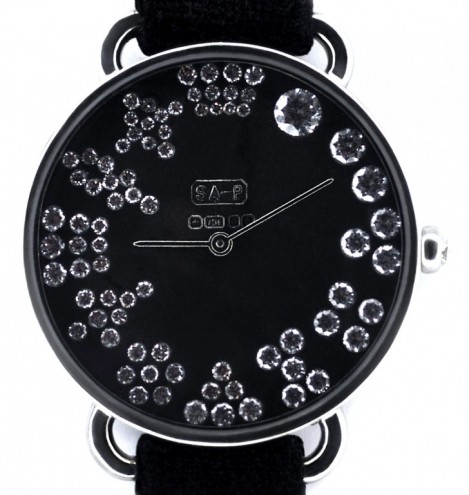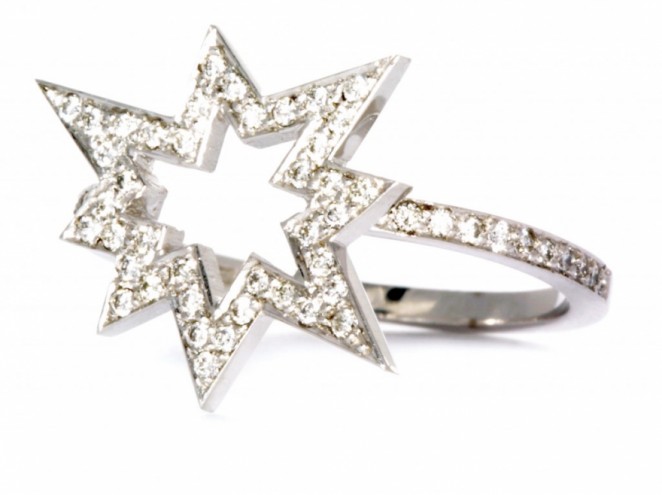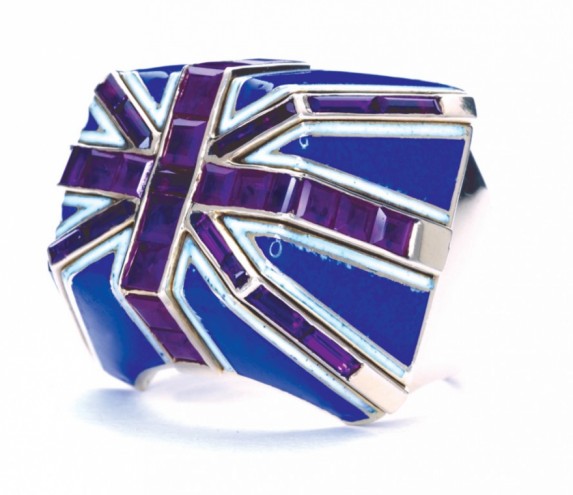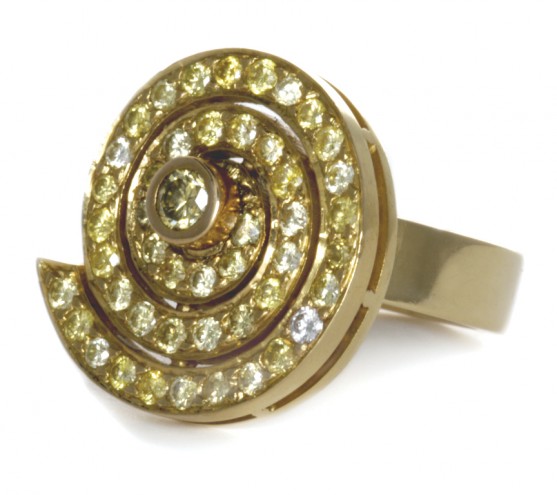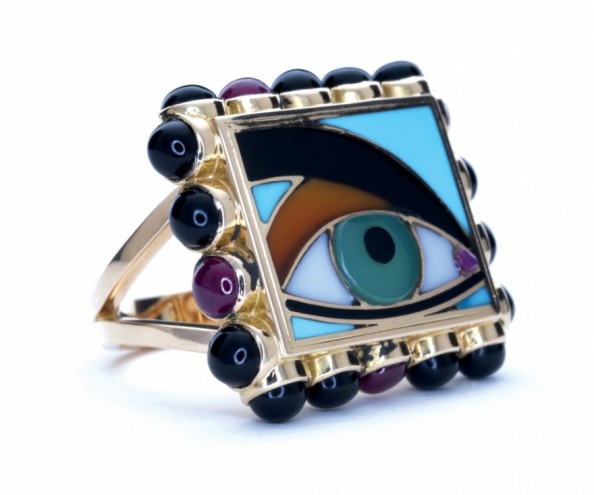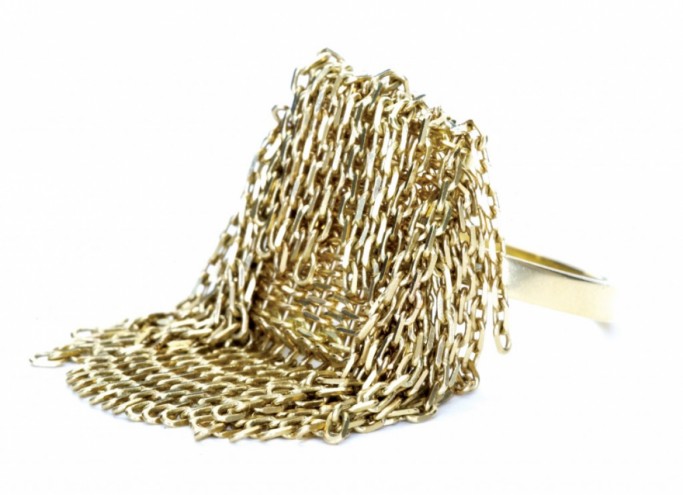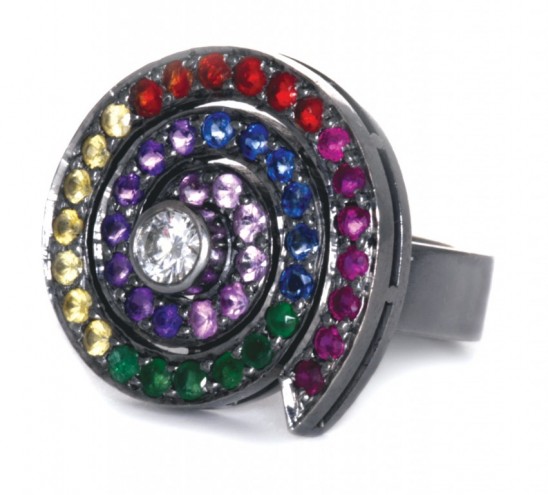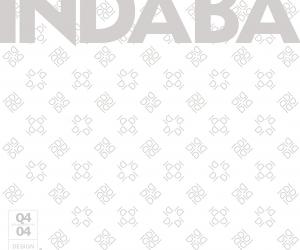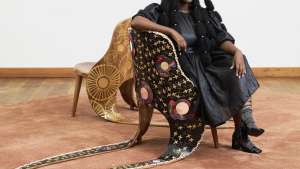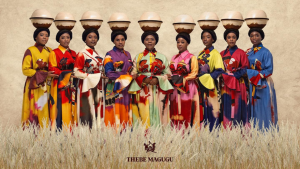First Published in
"One day every woman wakes up wanting diamonds," believes jewellery designer, style leader and taste maker Solange Azagury-Partridge whose aesthetic approach has been described as iconoclastic, irreverent and phenomenal.
For those people who don't know your background, please can you give me an introduction to how you fell into the world of jewellery design?
Accidental really - I did a language degree, came out of college and couldn't find a job as a translator doing anything other than boring technical translations. I wanted to be doing books or film scripts. I got a job in a costume jewellery shop where a friend was working and worked as the boss's assistant doing production. I then worked in an art gallery that sold 20th century vintage jewellery, which was again another eye opener. I then designed my engagement ring. It was partly because I couldn't find anything I liked and partly financial.
From there did you open your own store?
No, it was purely a hobby. I was still working, teaching languages, I had three jobs on the go at the same time. I did that for about five years, slowly building up a little collection of pieces. When I had my child, I had to leave my job and decided to ditch everything else, concentrate on designing jewellery and see where it took me. I built up a clientele while I was working from home and reached a point, when my son was about five years old, that my home was no longer my home - it was invaded with other people. So I decided that maybe it was about time to open a shop. That's when I suddenly realised I had a career in jewellery.
It's amazing how it evolved.
It evolved because I was lucky enough to have a husband who supported me. I didn't go the traditional route. For those who study jewellery design at college, I would say try and work in the arts field and make pieces on the side. Sell them to your friends. It's totally a word of mouth experience. You just need to be true to your instinct and your own desires. We are all different and yet we are all the same so you can be sure that there is someone out there who is going to love what you do. So even if it doesn't appeal to everybody, there will be a niche market for you somewhere.
You once said that "Being an outsider is your raison d'être, that you don't like being a part of a secret society", can you explain that a bit more?
I always felt like I was on the outside of the jewellery industry and I still do in a way. Because it is called the jewellery business and jewellery industry and it's not about the love of jewellery - it's about business and money. And while I am running a business which affords me a nice lifestyle, what I never want to be is merely a production line and that is why I don't want to expand to a point to where all I am doing is worrying about quantities and costings. There are different ways of doing things and I would rather make things that I love and appeal to the few people that I know will like it. I don't listen to what the market is saying to me, I just do what I want to do.
How much of your success is the design and following the design aspect versus the business aspect of design?
I think that if you are going to run a business you can't be stupid and overspend, you have got to spend within your needs. That is what I have always tried to do and that's why it's been quite a slow organic growth process. Each sale has afforded me the time or the money to make an extra piece that I wouldn't have been able to afford before. Rather than get a huge bank loan or an investor or a partner, I would rather do it in this way because I see this as something that I want to do for my whole existence and I have got all the time in the world. I am not in a hurry. I just want to have a nice life. It's so refreshing to hear that from someone who is so successful in this "industry" that you don't see yourself a part of. I was very intrigued by the insider aspect of the business and working at Boucheron really showed me the insider workings of the jewellery business. It was fascinating and actually very beguiling. Had my life been different somehow - had I been a single girl from Paris - it could have been different, but maybe I would never have gotten the job there. It was never going to be a forever thing for me. It was a fantastic experience, very interesting and very educational.
What were the fundamental differences between working for a large organisation such a Boucheron versus your own design studio? For those trying to make a decision about going the corporate or own business route.
There is nothing wrong with that. I am just too old and too controlling to have a boss anymore. I did have a fabulous boss - Tom Ford, who I greatly respect. It's a great place to go straight out of college. Its just different kinds of characters. It's a comfortable existence in a way.
And resources?
They were amazingly resourced - but even at that level with almost as many jewellers than you could hope for and the best kind of stone quality and as much of it and with as many people on hand to help, it still wasn't enough. Its like a never-ending desire you can never fulfill. I found I just wanted more and more and more and for me that is what jewellery is, it's like a never-ending kind of need for more. A never-ending desire.
Having said that the aspect I find interesting is design, and I think one can design jewellery that is beautiful but not necessarily made from precious materials. I would love to design some costume jewellery or plastic jewellery. I think you can make jewellery out of anything, even from pebbles on the beach - it's not about the intrinsic quality for me anyway.
I notice your collection ranges from quite chunky, tongue-in-cheek pieces such as your Fuck off Emerald Cuff to the more delicate pieces such as the Crop Circle Earrings. What are the challenges of designing in these different ways, or is there a difference?
It's very hard to dissect how one designs or creates. Everyone has their own aesthetic and your own aesthetic will come out whether you are designing a big fat thing or a tiny little thing. It will come across as being by you because you have done it. That is why they reconcile because they are designed by me. As far as being inspired or creative, do things that interest you - rock climbing, reading, cinema - whatever it is you love to do. Do it and this is how you will find your inspiration. I can almost turn anything into a piece of jewellery if I put my mind to it and if you are a rock climber you have to ask yourself how do I turn this mountain into a piece of jewellery?
I wanted to ask you having done other design work on the interior side and the product design work for Habitat - what are the super specialties of working in jewellery design rather than other areas of design?
I specialised in jewellery but I do feel that I could have specialised in some other field and applied my aesthetic somewhere else. I think design is design really whether it is jewellery or furniture or objects. If you apply yourself, I think you can translate design across the board. Plenty of people do it.
The constraints of the body make jewellery design different. If you are designing furniture, again it is the constraints of the body but on a much larger level. With buildings it's the constraints of people and air-conditioning and other technical aspects of the building. I can't design in a void - I need to have limitations within which to design. If someone said design whatever you want, I would rather they say design a pair of earrings. My limitations are jewellery for women to wear using precious metals and stones. Those are the limitations I have given myself.
Going back to working with Boucheron, I am interested to know how you feel a company like that functions differently from a design perspective today than it did maybe 100 years ago. How has globalisation and the changing world changed the almost ancient art of jewellery design?
Marketing is the one word that pops into my head that I think dominated globalised businesses. It may be good and it may be bad but it is possibly a necessary evil and it works. It's a necessity because there are huge budgets to meet, overheads to meet, wages to pay and that is when you get into commercialisation. You know there is nothing wrong with being commercial because if a lot of people like what you do, it is good. It is good to appeal to a lot of people. That was my experience. Much less whimsical and more focused.
South Africa is the largest producer of Gold and Platinum in the world yet we are not known as having produced great jewellery designers. Why do you think that is and what do you think can be done to start creating that side of the jewellery business being born out of South Africa?
I liken it to somebody acquiring a skill, and they have been taught in a certain way and been told to do it in a certain way and they can't imagine it being done in another way. Unless you are removed from that process, you can't see things in a fresh way until you remove yourself from that. I can't see how people can remove themselves from that aspect of it. You need to forget about how jewellery is made, how it has been made before, the intrinsic value of the alloy.
It also needs to be local and community before it can become international. Don't focus too early on the international - it's like running before you can walk. My business is totally local, so cottage industry - I live near home, I work from home, my employees are local, its all made in England. Its really home-grown and I think it is really important. In South Africa if you have the raw materials and the craftsmanship you don't need to worry about the international, just worry about the local market. Once local has developed, national will develop and from there international interest will develop.
What are the qualities that have allowed you to become a successful and adored designer?
It's getting away from that feeling you get when you walk away from shops and you feel like you are being sold to. I have told people who have worked for me I never want to see them doing a hard sell. It's not about bling, it's about the feeling of that piece of jewellery. How it makes you feel when you are wearing it. Perhaps I'm the anti-jeweller or something. I want to be personal and individual and not homogenised.
Finally what is your favourite piece you have ever designed?
Oh, I don't know if I have a favourite, they are all my babies. I wear my fringe ring every day, I love my new watch. I know what my favourite Boucheron piece is, the Ruby Cup Ring.
About the jeweller
Solange Azagury-Partridge's aesthetic approach has been described as iconoclastic, irreverent and phenomenal.
Solange opened her first store in 1995. Designed as an oversized jewellery box, it immediately attracted an international, eclectic client base spanning the likes of endless rock gods and goddesses to artists, filmmakers and anyone with an unconventional approach to beauty. With no formal training, the only rule Solange applies to every creation is to subvert the expectations of how precious stones and metals should be combined.
Her collections include Cosmic, a collection of intricate stone-inlay work using mystic themes and Seven, a collection to celebrate her seventh year in business, consisting of seven different pieces featuring a "Days of the week ring" and the "Vices and virtues" ring. In the same month that she introduced Delicate, a collection featuring rainbows, peace signs and child like patterns, she was named one of the four designers nominated by the Design Museum for the 2003 Designer of the Year Award. You can find more of her designs in The Louvre.
Solange is intrigued by the idea of making even the most everyday object glitter like mad. And as she says "What's life about if not to find the beauty in every moment and every single thing?"

